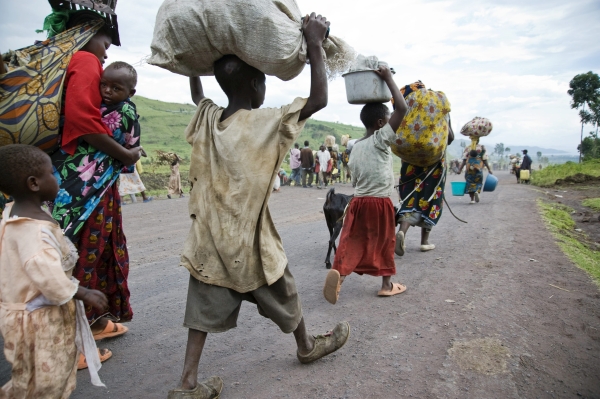In 2015, the number of refugees and displaced persons worldwide reached over 60 million. Most remain inside their own national borders as internally displaced persons (IDPs) or flee to neighbouring countries. Only a very small number have so far sought refuge in Europe. Nonetheless, due to the surge in refugee numbers last year and the often dramatic circumstances in which they attempt to reach safety, which attracts considerable media coverage, there has been a noticeable shift in public attitudes in Europe and the pressure for action to be taken has increased. In addition to the question of how the refugees are initially to be cared for and subsequently integrated, the focus has shifted towards “tackling the causes of migration”. In media reports and political debates, however, the meaning of the phrase often remains unclear. A closer look at the situation reveals that the causes of displacement and forced migration are diverse and often interlinked. People leave their homes because their lives are at risk from war and armed conflict or because they lose their livelihoods, perhaps as a result of environmental change or the effects of international policy. The spread of Islamist groups in various countries also plays a role.
This year’s Berlin Summer Dialogue will provide a forum for debate about the underlying causes of displacement and forced migration and ways of tackling them – beyond short-term financial assistance and humanitarian aid. What role is played by international politics, e.g. trade or climate policy, in this context? Which political conditions in the countries of origin force people to leave their homes? What can the international community do to improve the situation in these countries? What measures can be taken in the host countries to create prospects for local communities but also for refugees – who often stay for many years – with a view to preventing further movements of people? And how can existing mechanisms be interlinked and refined to make them more sensitive to displacement and forced migration?
Conference languages: German and English
Speeches
Causes of Displacement & Forced Migration: Historical Context (Susanne Melde)
Interviews
With financial support from
The German Federal Ministry for Economic Cooperation and Development (BMZ)


